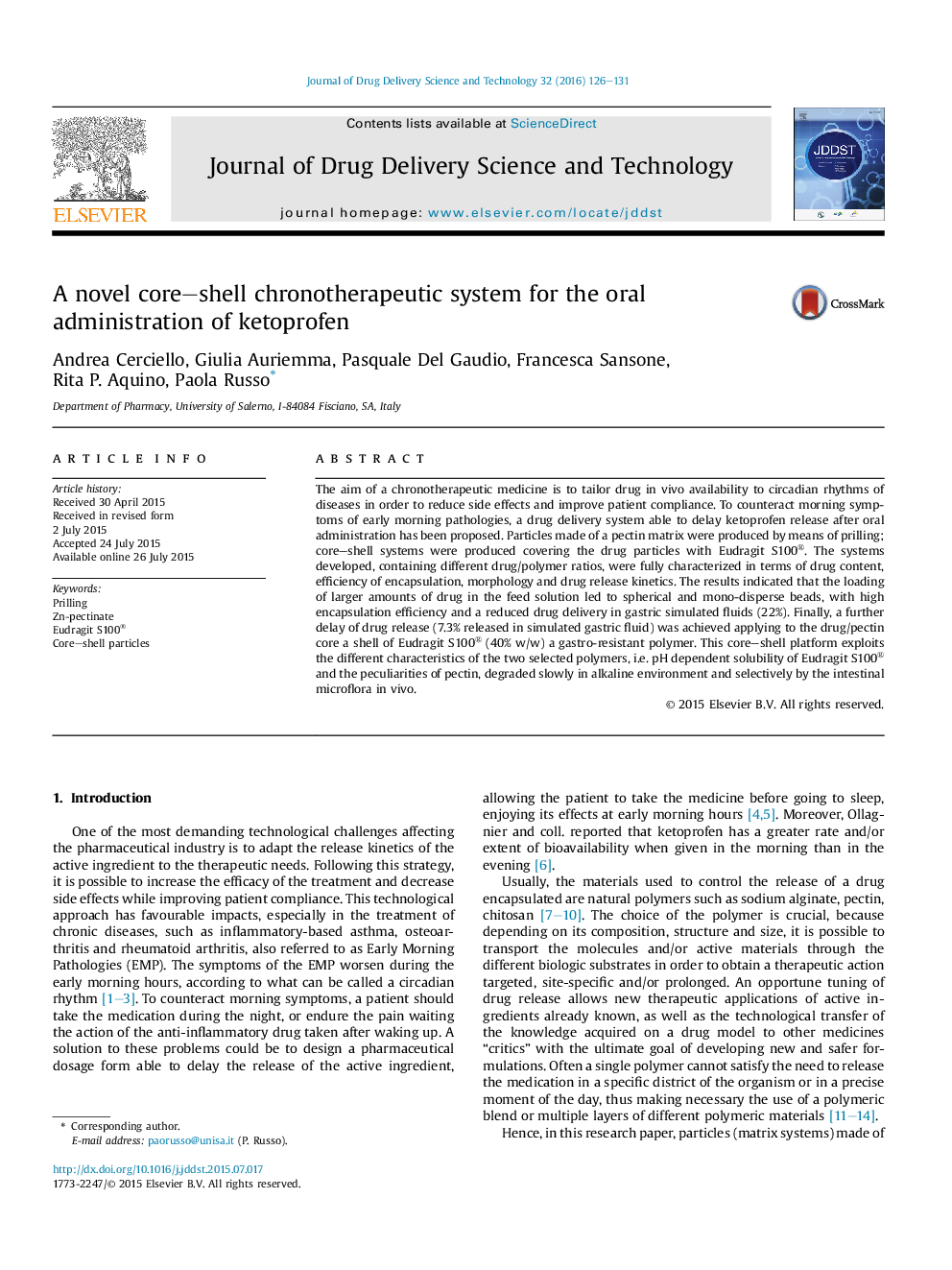| Article ID | Journal | Published Year | Pages | File Type |
|---|---|---|---|---|
| 2483042 | Journal of Drug Delivery Science and Technology | 2016 | 6 Pages |
The aim of a chronotherapeutic medicine is to tailor drug in vivo availability to circadian rhythms of diseases in order to reduce side effects and improve patient compliance. To counteract morning symptoms of early morning pathologies, a drug delivery system able to delay ketoprofen release after oral administration has been proposed. Particles made of a pectin matrix were produced by means of prilling; core–shell systems were produced covering the drug particles with Eudragit S100®. The systems developed, containing different drug/polymer ratios, were fully characterized in terms of drug content, efficiency of encapsulation, morphology and drug release kinetics. The results indicated that the loading of larger amounts of drug in the feed solution led to spherical and mono-disperse beads, with high encapsulation efficiency and a reduced drug delivery in gastric simulated fluids (22%). Finally, a further delay of drug release (7.3% released in simulated gastric fluid) was achieved applying to the drug/pectin core a shell of Eudragit S100® (40% w/w) a gastro-resistant polymer. This core–shell platform exploits the different characteristics of the two selected polymers, i.e. pH dependent solubility of Eudragit S100® and the peculiarities of pectin, degraded slowly in alkaline environment and selectively by the intestinal microflora in vivo.
Graphical abstractFigure optionsDownload full-size imageDownload as PowerPoint slide
